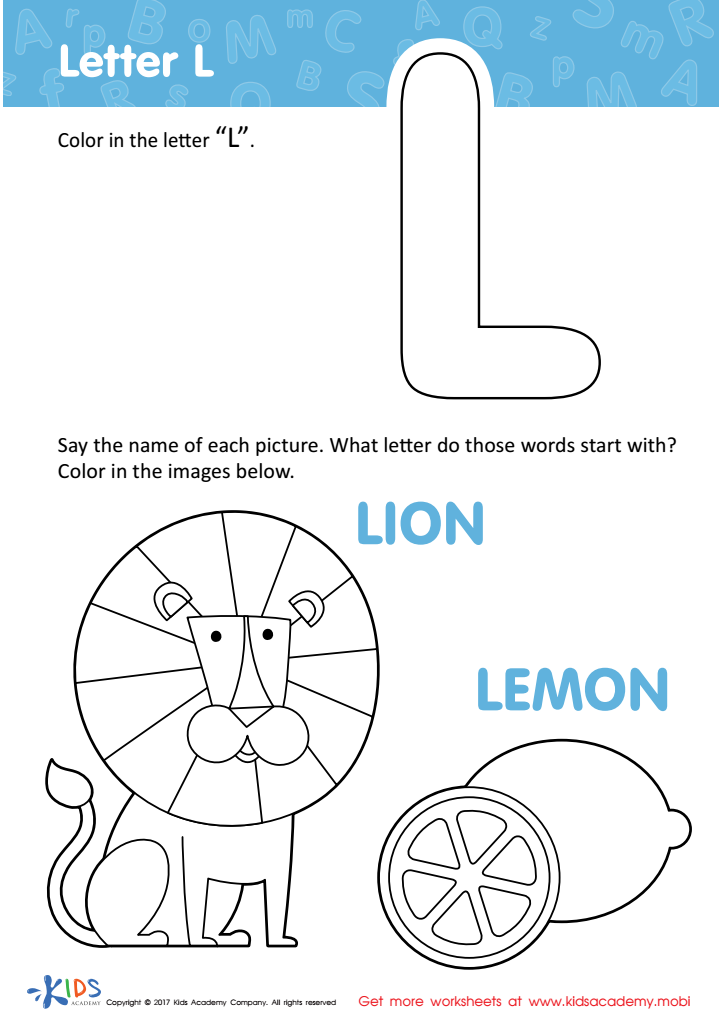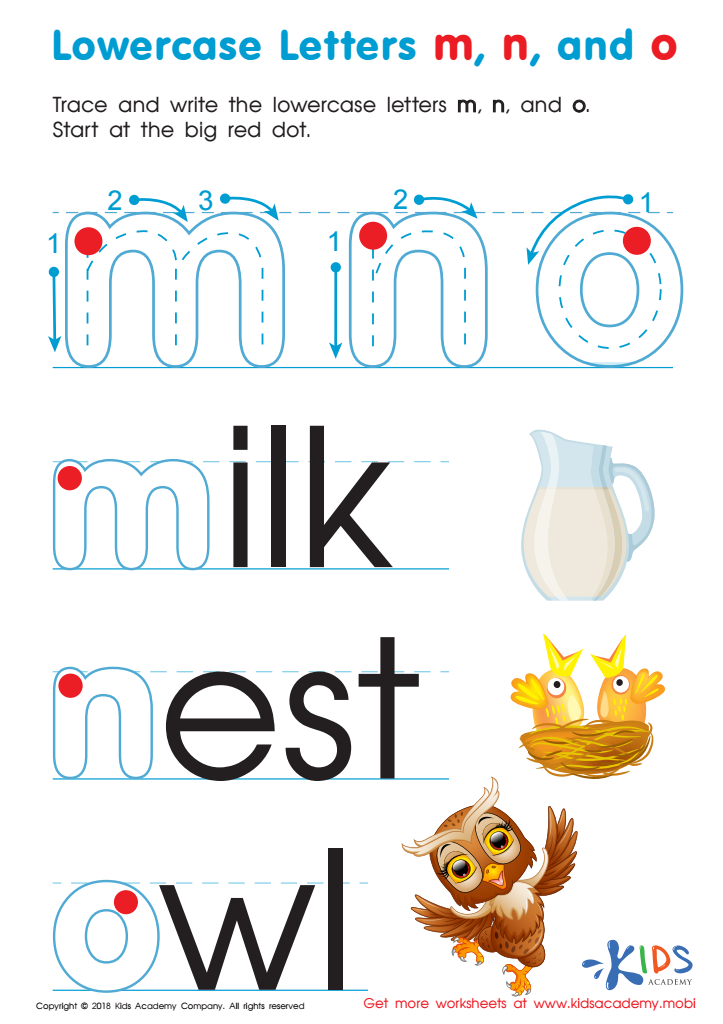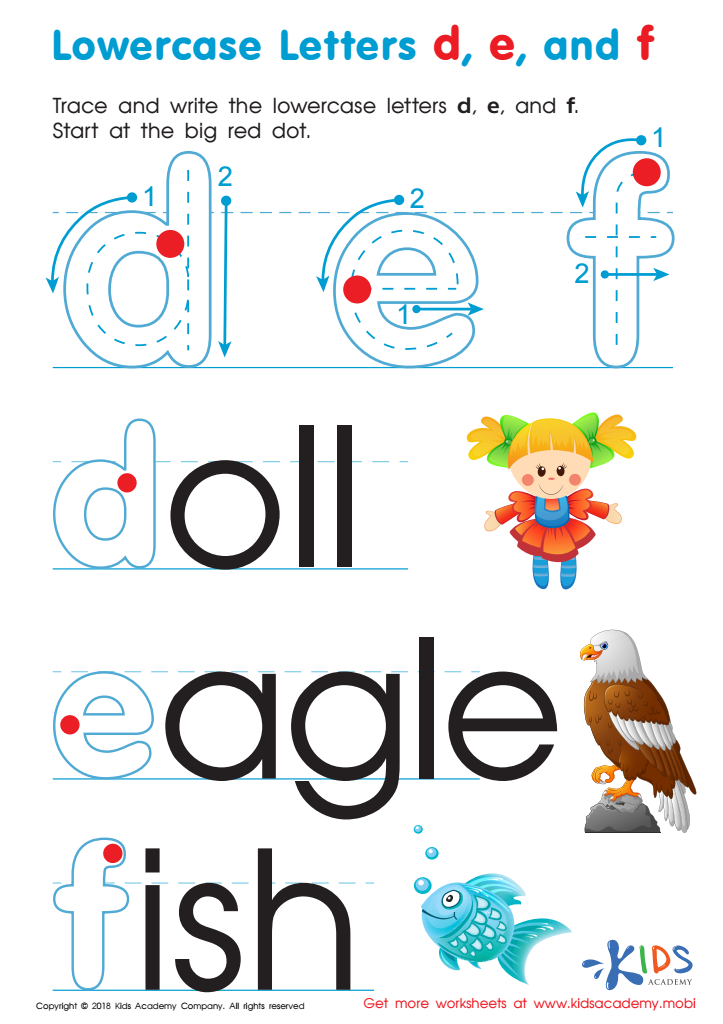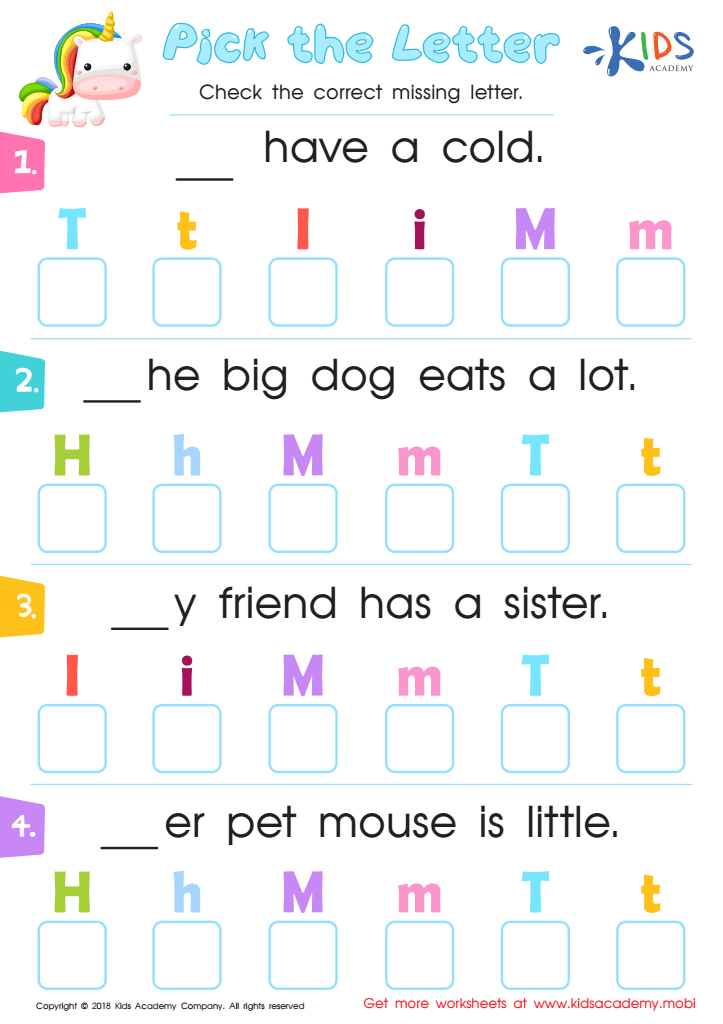Letter-sound association Normal Letter Recognition Worksheets for Ages 4-7
5 filtered results
-
From - To
Enhance your child's literacy skills with our engaging Letter-Sound Association Normal Letter Recognition Worksheets, designed specifically for children ages 4-7. These dynamic worksheets blend fun activities with foundational phonics, helping little learners connect letters to their corresponding sounds effectively. Through colorful illustrations and interactive exercises, kids will improve their reading readiness while building confidence in their reading abilities. Perfect for both home and classroom use, our resources support early literacy education by encouraging children to practice letter recognition and sound correspondence in an enjoyable way. Give your young learners the tools they need to succeed in reading with our expertly crafted worksheets!


Letter E Coloring Sheet


Letter L Coloring Sheet


Lowercase Letters m n o Worksheet


Lowercase Letters d e f Worksheet


Pick the Letter Worksheet
Letter-sound associations are crucial for young learners, particularly for children aged 4 to 7, as they form the foundation of literacy development. This critical skill helps children understand that letters represent sounds, enabling them to decode words when reading. Teachers and parents should care about this aspect of literacy because it directly influences a child's ability to read fluently and understand text.
When children develop strong letter-sound associations, they gain confidence in their reading abilities, which enhances their overall academic performance. Early mastery of these skills can also mitigate frustration later on, making the transition to formal reading smoother and less daunting. Furthermore, fostering a solid grounding in letter recognition and sound associations nurtures not only cognitive skills but also encourages a lifelong love of reading and learning.
The insights gathered during this developmental stage can guide teachers in tailoring instruction to meet individual needs and unlocking students' linguistic potential. Likewise, parents can reinforce these concepts at home, establishing a cooperative approach to promote literacy fluidity. Supporting letter-sound association is essential for equipping children with the necessary tools to engage with their academic world effectively, laying a strong foundation for future educational success.
 Assign to My Students
Assign to My Students















